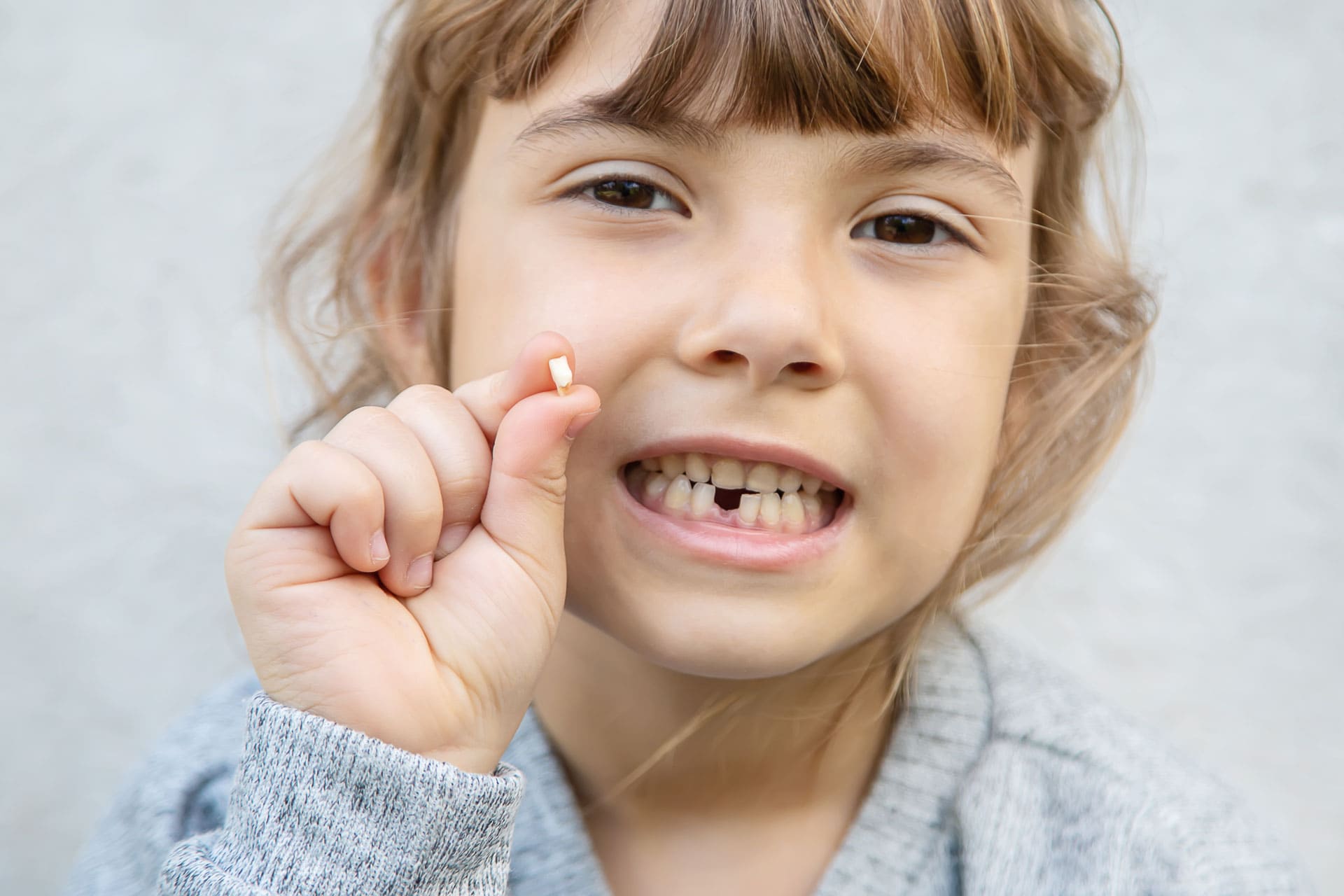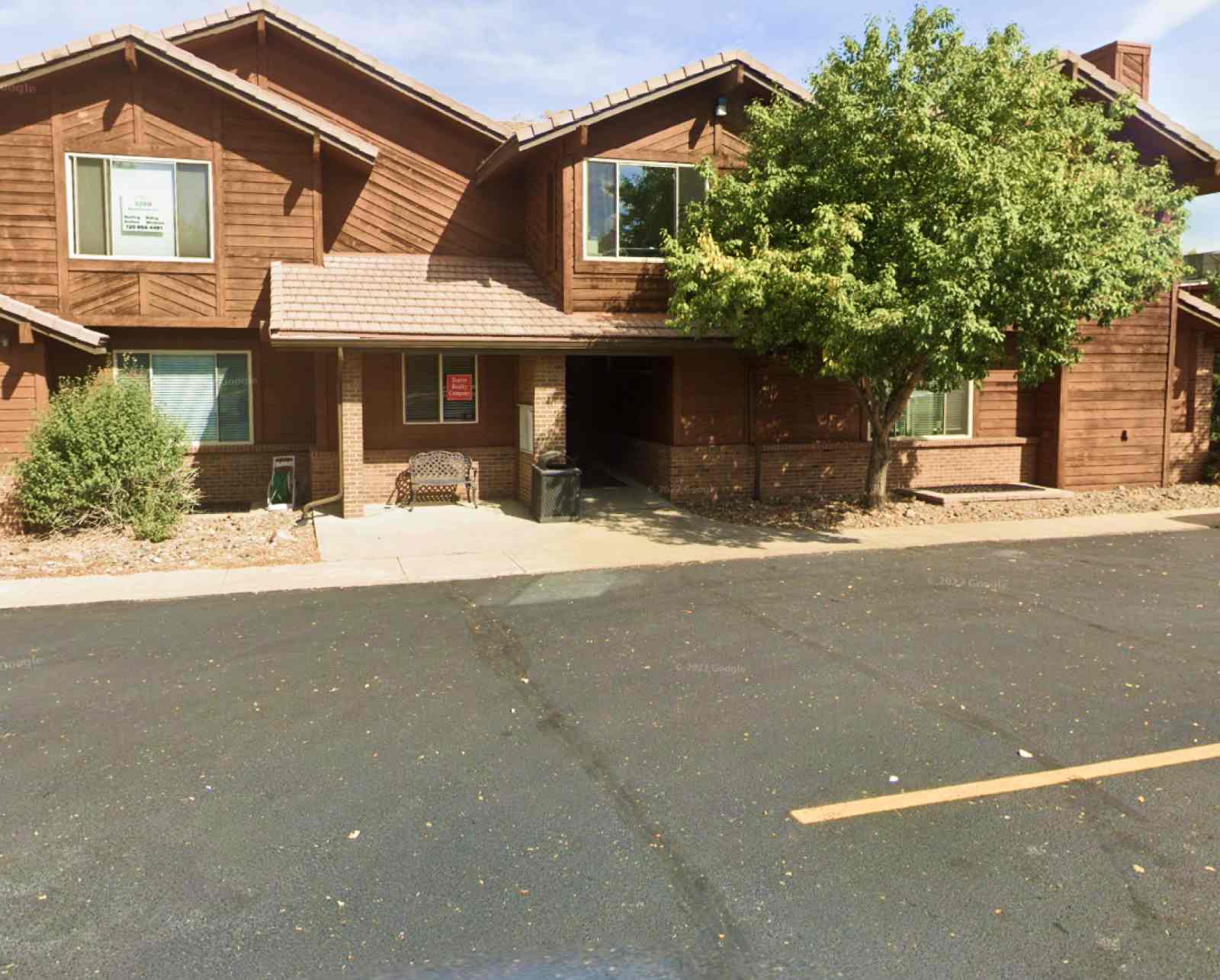Dental Treatments For Kids In Brighton, CO
Caring & Compassionate Kids Dentistry
Nitrous Oxide
Nitrous oxide, or “laughing gas,” is a kind of sedation used on children who have dental anxiety. It is completely safe and non-toxic; in fact, your child will remain awake and able to speak and answer questions the entire time. Nitrous oxide works by blocking neurotransmitters that cause the body to experience anxiety. It also signals the body to release norepinephrine which inhibits pain signals. This allows your child to feel relaxed and calm throughout their treatment.
Nitrous oxide is incredibly effective in the world of sedation dentistry and is used often. It can help those who struggle to stay numb under anesthetics and often experience anxiety and nervousness surrounding dental treatments.
Dental Sedation Using Nitrous Oxide
Nitrous oxide is administered via a mask that is held to your child’s face, where they will breathe it into their nose and begin to feel the effects right away. As we mentioned, they will still be awake and responsive but without the fear and anxiety that may be preventing them from sitting still or remaining calm. Dr. Hannah is careful to ensure your child will receive the proper dosage of nitrous oxide and is comfortable the whole time. Once the treatment is done, the mask is removed, and the effects will naturally begin to fade.
If your child is scheduled to undergo treatment at our office and experiences anxiety and fear surrounding the dentist, speak with Dr. Hannah or one of our team members about nitrous oxide. We can discuss your concerns and develop a plan to ensure your child is comfortable and safe throughout the entire treatment.
In-Office General Anesthesia
What is General Anesthesia?
General anesthesia is a controlled state of unconsciousness that eliminates awareness, movement, and discomfort during dental treatment. A physician or specialized dentist with specialized training can use various medications to provide general anesthesia for patients.
Who Should Receive General Anesthesia For Dental Treatment?
General anesthesia may be indicated for children with excessive dental needs who are extremely uncooperative, fearful, or anxious. General anesthesia can also be helpful for children requiring surgical procedures or patients having special health care needs.
Is General Anesthesia Safe?
Although there is some risk associated with general anesthesia, it can be used safely and effectively when administered by a trained professional who closely monitors your child throughout the procedure.
What Special Considerations Are Associated With The General Anesthesia Appointment?
A physical evaluation is required prior to general anesthesia for dental care. This physical assessment provides information to ensure the safety of your child during the general anesthesia procedure. Your pediatric dentist or general anesthesia provider will advise you about evaluation appointments that are required.
Parents are instructed to report to the pediatric dentist any illness that occurs prior to the general anesthesia appointment. It may be necessary to reschedule the appointment. It is very important to follow instructions regarding fasting from fluids and food prior to the appointment.
Your child will be discharged when stable, alert, and ready to depart. Patients are often tired following general anesthesia. You will be instructed to let the child rest at home with minimal activity until the next day. Post-operative dietary recommendations will also be given.
The American Academy Of Pediatric Dentistry (AAPD)
The American Academy Of Pediatric Dentistry (AAPD) is the recognized authority on children’s oral health. As advocates for children’s oral health, the AAPD promotes evidence-based policies and clinical guidelines; educates and informs policymakers, parents, and guardians, and other healthcare professionals; fosters research; and provides continuing professional education for pediatric dentists and general dentists who treat children. Founded in 1947, the AAPD is a not-for-profit professional membership association representing the specialty of pediatric dentistry. Its 10,000 members provide primary care and comprehensive dental specialty treatments for infants, children, adolescents, and individuals with special health care needs. For further information, please visit the AAPD website or the AAPD’s consumer website.
Crowns & Fillings
Crowns and fillings are common restorative treatment options for teeth that have been damaged by decay. They are important for ensuring that the affected tooth can be saved rather than having to have it removed. Crowns act as a cap to cover and protect the affected tooth, while a filling replaces the damaged area with a composite resin that looks and feels like your natural tooth. After treatment, with proper care and hygiene, fillings and crowns can last for decades.
At Trinity Kids Dental, we are committed to providing safe and effective treatment options for children to improve their overall oral health. To learn more about crowns and fillings in Brighton, CO, contact our office to request an appointment.
Crowns
It may come as a surprise to know that crowns can be used in and are incredibly beneficial to pediatric dentistry. A crown is a restorative treatment option made up of a strong, durable material that mimics the look and feel of a natural tooth. They are used in cases where a child has a tooth that has been broken or weakened by decay.
A crown is applied similarly to a cap in that it fits over the original tooth and appears as the tooth’s outer layer. Each crown is crafted using an impression of the original tooth, which allows lab technicians to mimic its look and feel so that it fits your child’s natural bite without being noticed.
With the crown, further damage and decay can be prevented without having to lose the tooth altogether. Not to mention, your child will quickly forget it even exists as it will feel so natural.
Fillings
Fillings are a restorative treatment option for children whose teeth have been damaged by cavities. They are made up of a ceramic or plastic material that mimics the look and feel of natural teeth. Fillings most often come in a shade of white to match the color of natural teeth and blend in naturally.
Fillings are applied by first drilling and removing the damaged or decayed areas of the tooth and then filling them in with the material, shaping and adjusting it to fit the natural bite of the patient. Local anesthetics are used to ensure the comfort and care of the child.
Pediatric Nerve Treatment
The term “root canal” is often met with pained expressions, but we assure you that a baby root canal is a safe and comfortable treatment meant to prolong the life of a decaying tooth.
Baby teeth are smaller than adult teeth, so when they get a cavity, they are more susceptible to decay in the root. Instead of having that tooth removed and losing the tooth too soon, a baby root canal allows the tooth to stay intact until it is ready to be lost naturally. It’s important to ensure that a baby tooth is not lost too soon because they can cause gaps or spaces between the teeth that can lead to orthodontic issues later in life.
Baby Root Canal Therapy
Depending on the extent of the deterioration, a baby root canal may need anywhere from one to three appointments. Dr. Hannah will start by cleaning and sealing the tooth after removing the decayed bone. After the canal is cleaned out, a composite resin will be used to restore the tooth’s natural appearance and feel. To protect the tooth from future damage, a crown may be necessary.
Following the treatment, your child should feel relief from their toothache rather quickly, although they may be sore for a couple of days following the treatment. During this time, they can enjoy soft foods and liquids such as soup or ice cream. As long as they continue their healthy oral habits, including brushing twice a day, flossing once a day, and visiting our office at least once every six months, they should experience no more issues with that tooth.
Root canals sound intimidating, but they don’t have to be. By working with a pediatric dentist, you and your child can be reassured that your oral health is in expert hands. Learn more about our baby root canal therapy in Brighton, CO, by contacting our office.
Tooth Extractions
For most children, losing their baby teeth is a fun challenge that is often met with excitement. And most of the time, losing baby teeth is simple and natural. In some cases, though, it may be necessary to have a stubborn or decaying tooth extracted by a professional. For baby tooth extractions in Brighton, CO, contact Trinity Kids Dental and request an appointment.
When Are Tooth Extractions Necessary?
In general, we would prefer to allow for a baby tooth to come out on its own. However, there are times when it is necessary to extract a baby tooth if it is preventing the primary tooth from erupting. If it is not falling out on its own, it could be due to the misshapen or long roots, in which case extraction is required.
Other reasons a tooth may need to be extracted include an excessive amount of decay that could be harmful to surrounding teeth or the jaw. In this case, a root canal or filling would not be enough to save the tooth, and it will have to be pulled. It may also be necessary to extract a tooth if it is necessary for an orthodontic correction, such as overcrowding.
Scheduling regular visits with Dr. Hannah is key so that she may keep an eye on your child’s development and decide if a tooth extraction in Brighton, CO, is necessary.
Dental Sealants
The key to good oral health is prevention. This is why we encourage regular brushing and flossing and routine dental appointments. With proper care, we can prevent most dental issues, such as cavities and gum disease.
Although, even with proper care and brushing, there are still little gaps that your child may miss between teeth or in deep grooves. These areas are especially susceptible to cavity-causing bacteria. That’s why we recommend dental sealants in Brighton, CO.
Dental sealants are made up of plastic resin that adheres to the teeth in a thin film. It acts as a “seal” against food and bacteria from direct contact with the teeth, effectively preventing cavities. Sealants are most commonly used on primary teeth but can be used on baby teeth should Dr. Hannah find them beneficial to the patient. With proper care, sealants can last for three to five years and sometimes even longer.
If you’re interested in trying dental sealants in Brighton, CO, contact Trinity Kids Dental and request an appointment today.
Professional Fluorides
Fluoride is well-known for its cavity-fighting abilities, hence why it is one of the main active ingredients in your child’s toothpaste and mouthwash. Fluoride works by coating the teeth and preventing bacteria from building up and hardening onto the tooth. So if it’s already present in our daily routines, why are fluoride treatments so highly recommended?
Although fluoride is present in your toothpaste and mouthwash, a fluoride treatment from a professional pediatric dentist includes higher amounts of fluoride. When this absorbs into the teeth, it helps fight off cavities even better than common toothpaste. When used in combination with fluoride toothpaste and mouthwash, your child will be better protected against cavities and plaque buildup.
How Does a Fluoride Treatment Work?
A fluoride treatment at Trinity Kids Dental is often done in conjunction with routine cleaning and an exam at the end of the appointment. Dr. Hannah or a team member will brush on a thick layer of fluoride which will harden and absorb into the teeth in just a few minutes. Depending on your child’s treatment plan, this can be done every six months or once a year. After a fluoride treatment, you are okay to leave; however, you should avoid letting your child eat or drink anything for at least 30 minutes.
If you’re interested in fluoride treatments in Brighton, CO, for your child, contact Trinity Kids Dental and request an appointment.
Choosing Fluoride Care Options
When it comes to your child’s everyday oral hygiene routine, it’s imperative to be choosing the best products, which can be difficult when there are so many options available. In general, look for products that have been stamped, have been tested, and deemed safe.
Interceptive Orthodontics
Most people believe that the teen years are the “sweet spot” when it comes to orthodontic treatment, but in reality, the earlier you can begin treatment, the better. By scheduling regular appointments with our trusted pediatric dentistry, Trinity Kids Dental, Dr. Hannah can monitor your child’s development and determine if interceptive orthodontics in Brighton, CO, could be right for your child. Contact us today to request an appointment.
What Is Interceptive Orthodontics?
Interceptive orthodontics is an early orthodontic treatment for children who may demonstrate orthodontic issues that could worsen or become more expensive to correct later in life. In children, the jaw and teeth are still developing, so it is much easier to correct any issues that may be present. With interceptive orthodontics, we can intervene early on and correct a variety of orthodontic problems, such as guiding erupting teeth, closing gaps between teeth, and improving overall alignment.
Unfortunately, as late teens and adults, our jaws become set in their positions, having finished growing. This means that attempting to correct any orthodontic issues will require longer and more extensive treatments, such as surgery.
When Is The Best Time For An Evaluation?
Preventative dental care evaluations for children are generally advised around age seven. Possible issues can be identified and corrected before they become serious. Naturally, if a problem arises at any point, an assessment can be done then as well. Some parents may bring their child in if they are demonstrating unhealthy habits such as thumb sucking–which can lead to tooth misalignment, or mouth breathing– which can be a sign of crooked teeth. In any instance, interceptive orthodontics can set the stage for a lifetime of excellent dental health for your child.
Contact Trinity Kids Dental today to learn more about interceptive orthodontics in Brighton, CO, and how it could benefit your child.





